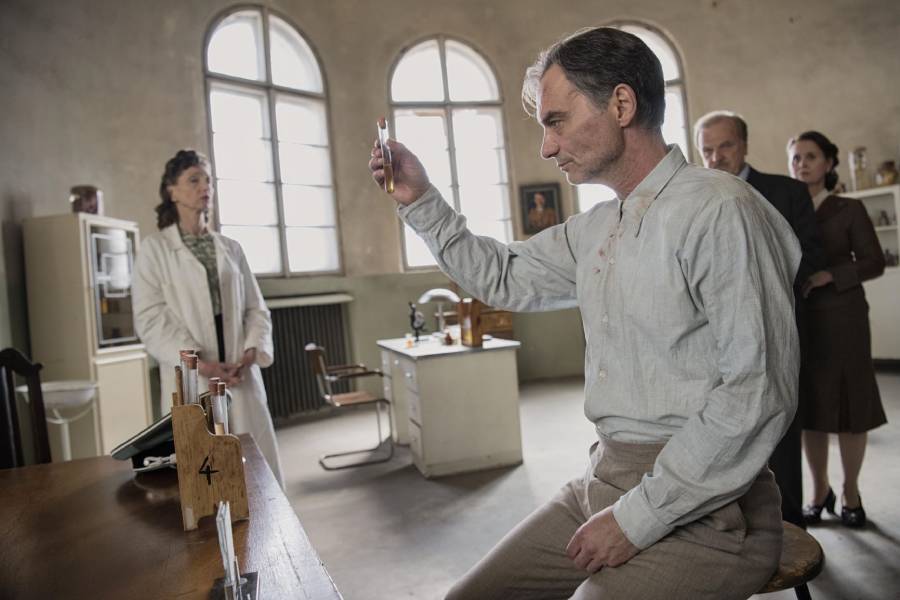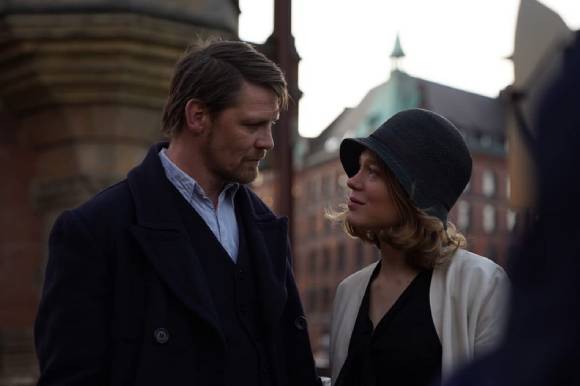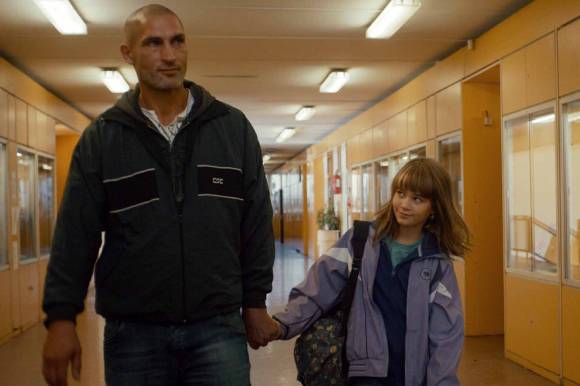 FNE: Because of COVID-19, cinemas in Hungary were closed from November 2020 to May 2021. What has Mozinet done to minimise its losses, survive this period?
FNE: Because of COVID-19, cinemas in Hungary were closed from November 2020 to May 2021. What has Mozinet done to minimise its losses, survive this period?
Bálint Szalóky: Although cinemas were closed, work did not stop during this period. After all, it was precisely because of the pandemic that the premieres of many of our films had to be completely repositioned. In other cases, we had to work with films in such a way that we didn’t know when we would be able to present them.
For example, only one of our eight new films screened at the 2020 Mozinet Film Days last October was able to hit theatres before their closing – it was Charlatan directed by Agnieszka Holland. All the other premieres were postponed for this year. In response to the pandemic, we held online pre-premiere screenings at Távmozi, and moved forward the online premieres of some of our films and made them available on Cinego.
FNE: Have distributors received any support from the government?
Bálint Szalóky: The National Cultural Fund of Hungary announced a tender entitled “Back to the Cinema”, which was open to distributors. The largest amount available was 1 million HUF / 2744 EUR, which we won. In addition, we received a grant of HUF 574,000 / 1575 EUR from the Art Cinema Association. Our losses due to the pandemic have been significantly greater than that already, and we expect to suffer further losses in the next year and a half, as cinema admissions will not approach the 2019 figures for some time to come. Nonetheless, we are grateful for the support. It helps a lot.
FNE: What challenges did you face after reopening? How did you overcome these challenges?
Bálint Szalóky: Plenty of films were stored up at the distributors’, making it extremely difficult to find a suitable release time for each film in an oversaturated and very uncertain market. This was especially true for Hungarian films, as there were at least one, sometimes two, Hungarian film premieres almost every week in the autumn. At the same time, cinema admissions are far behind, so more films are fighting for fewer cinemagoers. It seems that films aimed at younger audiences, such as Venom: Let There Be Carnage, perform very well, while art films  underperform significantly.
underperform significantly.
FNE: What do you know about the current state of cinema admissions in Hungary?
Bálint Szalóky: Although the interest in event films has recovered quickly, and they are approaching pre-pandemic numbers, the same cannot be said for art films just as yet. There are only one or two art films that have managed to bring in an adequate number of admissions so far. One of the reasons for this is that the reopening took place in the most unfortunate time of the year. During the summer, only the big studio films really work, regardless of the pandemic.
The other reason is that the audience of art cinemas are mainly intellectuals aged over thirty and this demographic group is very selective about what risks they take. They would rather delay going to cinemas, and constantly gather information about the current state of the pandemic. Many of them feel insecure about their work, so during a period of financial uncertainty, they are very cautious with their spendings.
FNE: What can a distributor do to lure back the audience?
Bálint Szalóky: We primarily try to present films that can appeal to our audience. This, of course, depends not only on us, but on all the players in the market: we need a diverse and exciting range of films. No matter how much we seem to be competing with each other, in such situations we support each other. In order for the audience to come back to cinemas, the new James Bond and the Dune are just as necessary as Titane, which shocks many cinemagoers. Wild Horses / Vadlovak has been able to entertain whole families; Ildikó Enyedi's large-scale adaptation of Milán Füst’s bestseller The Story of My Wife / A feleségem története widens the range of films as well. The latter three are distributed by Mozinet.
FNE: How many premieres have you had in 2021? How does this number compare to the pre-pandemic period?
Bálint Szalóky: We have 15 films this year, whereas we showed a total of eight last year. We had 16 premieres in 2019 and 14 in 2018. Based on this, it may seem as if last year was more affected by COVID-19, but, in reality, a significant part of our foreign films shifted from last year to 2021. This year we have distributed more Hungarian films than before – five to be exact.
FNE: How much risk could Mozinet take after this challenging period? I am thinking of distribution where the financial gain, or at least breaking-even, is in doubt.
Bálint Szalóky: We bought the Palme d’Or-winner Titane before the awards ceremony in Cannes, and of course DAU Natasha is also not an easy sell at the cinemas. We regularly distribute films that are sure to be divisive on some level. These films have the possibility of becoming an event, and they compel the audience to have some kind of opinion and start a discourse about it. And, last but not least, they make the biggest impact in the darkness of the cinema. Of course, we can risk less during this period, as we are using up our reserves. But this is also known by the world distributors from whom we buy films, so the price of distribution rights for most films has decreased over the past one and half years.
FNE: Mozinet presented a surprisingly high number of Hungarian films this autumn. Are you pleased with, for instance, the admission generated by Wild Roots / Külön falka, which debuted at the Karlovy Vary International Film Festival?
Bálint Szalóky: We work on the distribution of a Hungarian film for many long months or even years. When we get to work, we have an idea of how many people would be attracted to the  cinemas to watch the film. More specifically, we draw up a pessimistic and an optimistic estimation. This number determines, among other things, the financial framework within which the campaign can be realised.
cinemas to watch the film. More specifically, we draw up a pessimistic and an optimistic estimation. This number determines, among other things, the financial framework within which the campaign can be realised.
Wild Roots, after a disappointing first weekend, was unusually busy in the second. Actually, it generated almost the same numbers in the second weekend as in the first. The audience seem to love the film immensely, recommending it to each other. Also the positive critical reception helps to reach the optimistic estimation originally envisioned - we hope to reach 10,000 admissions. And, while we would obviously be happy if every one of our films had many tens of thousands of viewers, the reality is unfortunately different, regardless of the pandemic. If a low-budget Hungarian drama doesn’t have well-known film stars, an Oscar nomination, or at least an award from Cannes, it remains a niche film, even in the case of Wild Roots, which is a relatable and delightful feature.
FNE: What happened with The Story of My Wife? Ildikó Enyedi’s lavish international production debuted at the Cannes Film Festival in June and reached the Hungarian cinemas in September.
Bálint Szalóky: Of the five Hungarian films, the effects of the epidemic have hit The Story of My Wife the hardest. But, at the same time, there is extremely positive feedback from the audience. We’re working to keep the film in the cinemas as long as possible. The number of 30,000 admissions seems to be reachable – however, we would have achieved at least a double of that number without Covid-19.
FNE: What lessons have you learned over the past year and a half? Will Mozinet change its business policy as a result?
Bálint Szalóky: Mozinet has an established profile. I don’t think an audience member should know who is distributing a particular film, but I trust that if he or she sees our name, it will be associated with a company that deals with sophisticated films. We are in the fortunate position of being able to select and present films, whether foreign or Hungarian, that we feel are  important for some reason – and, most importantly, which we would love to watch as well. We do not want to change this in the future. However, the last year and a half has brought many lessons, perhaps most importantly, that we need to be much more flexible with certain tasks. For example, we might have to rethink the campaign strategy even in the middle of its realisation, as it is not at all certain that what you figured out will work one year on.
important for some reason – and, most importantly, which we would love to watch as well. We do not want to change this in the future. However, the last year and a half has brought many lessons, perhaps most importantly, that we need to be much more flexible with certain tasks. For example, we might have to rethink the campaign strategy even in the middle of its realisation, as it is not at all certain that what you figured out will work one year on.
FNE: What are the company's plans for 2022?
Bálint Szalóky: This Christmas, we will present Nowhere Special, which had its world premiere at the Venice Film Festival. This year’s Cannes opener Annette also arrives at the end of 2021. It is a musical directed by Leos Carax, starring Adam Driver and Marion Cotillard. The Worst Person in the World won the Best Actress prize at the Cannes Film Festival, and many see it as the northern version of Amélie. Sometime during the next year we will release the Golden Lion-winner Happening, and Leave No Traces directed by Jan Paweł Matuszyński. I would also like to highlight Fanni Szilágyi's first feature Ice Cream Could Be Dangerous / Veszélyes lehet a fagyi, in which Natasa Stork plays a dual role, and which we are also going to release.



















